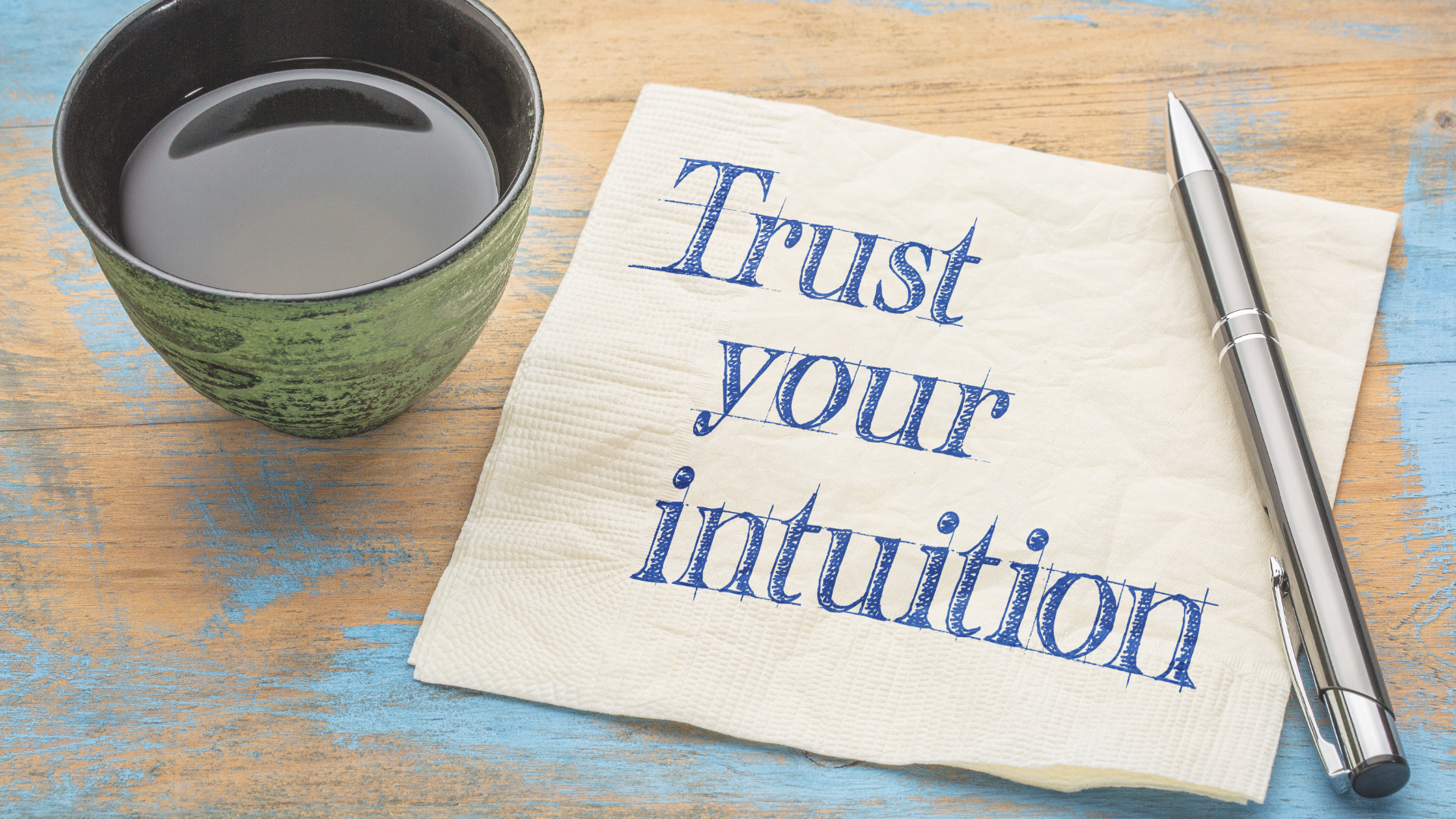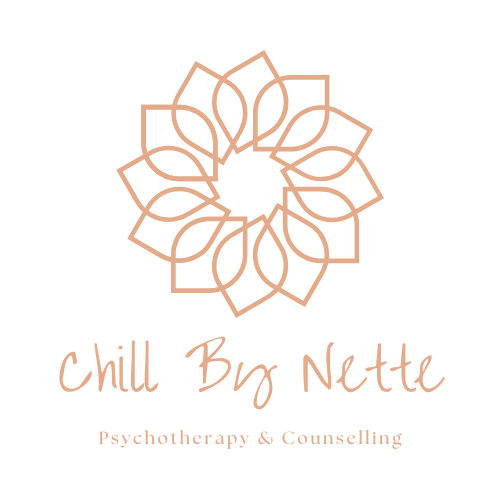The Science Behind Intuition and Understanding How to Use It
Intuition isn’t just something we feel, nor a woo-woo concept. It is neuroscience!
Jeannette Qhek · 27 February, 2021 | Category: Wellness, Personal Development

Here’s an entry from my journal this week:
Yesterday my sister told me this, “I am grateful for you for without you I wouldn’t get the courage to tender my job, I won’t have the courage to quit and look for a new job on LinkedIn.”
Looking at my sister, I couldn’t help but to see my younger self- the self who always felt so conflicted and just needed someone to tell her that it’s your path, you choose and don’t let external voices dictate how and where you go.
I then asked her, “how do you feel after making this decision…? Do you feel a deep sense of relief and a form of peace as well?”
And I’m glad that she didn’t hesitate before she said “YES”. She then went on to say that she did not regret the decision. And I told her, “and that’s enough…at least at this moment, this is the move for you.”
I guess for many of us, we are all so afraid of making “wrong” decisions and the idea of “how do I know if this is right for me?” often bog us down. Other times, there are real practical considerations as well.
I guess sometimes the easiest way is to check in with ourselves, our deeper intuition and knowing because that is more powerful than any directions you can get from outside of you.
Of course, it takes some sharpening before this intuitive voice gets stronger and louder.
This inspired me to research more into the idea of intuition.
The idea of intuition
We often hear this phrase “trust your intuition”. But what exactly is intuition and how much should we trust it?
Intuition is an ancient concept, a phenomenon that many people experience but is difficult to define and measure. It can come in the form of a sudden, mysterious impulse towards a particular decision: “I can’t trust this person”; “I shouldn’t walk down this alley alone”; “I am leaving this job”. Simply put, it’s a gut instinct that guides our decision making or problem solving.
However, most people reject the idea of intuition as there is little evidence to support its existence. But, what if the phenomenon were not just an intangible sensation?
What if, in fact, it was scientifically provable fact?
The scientific study of intuition is relatively new and complex, but there is evidence to suggest that it is a real and important aspect of human cognition.
In other words, there’s actually a neurological basis for it!
#1: Some scientists believe that intuition operates through multiple regions of the brain, particularly the right hemisphere, the hippocampus, and the gut.
The right hemisphere of the brain is associated with creativity, emotion, and intuition, while the left hemisphere is associated with logic and reason. Research has shown that when people engage in intuitive thinking, there is increased activity in the right hemisphere of the brain [1]
#2: Emotions and intuition have a physical presence in our gut, which is often referred to as the “second brain.” The gut is lined with a network of neurons called the enteric nervous system (ENS) a which is capable of sensing and reacting to its environment independently of the central nervous system [2]. This is why we feel ‘sick in the stomache’ about having to make a tough decision or knowing we’ve made a bad one.
#3 More recently, Lufityanto and Chris Donkin conducted a study to investigate the existence of intuition. The study aimed to determine whether people could use their intuition to make decisions without conscious awareness of the information that was guiding those decisions [3].
In the study, participants were shown pairs of images on a computer screen and asked to choose which image they preferred. Some pairs of images were presented very briefly, for only 13 milliseconds, so that participants did not have enough time to consciously perceive them. Other pairs of images were presented for longer durations, allowing participants to consciously perceive them.
The results of the study showed that participants were able to make successful decisions based on pairs of images that were presented briefly and subliminally, suggesting that they were using their intuition to guide their choices. However, the study also found that participants were more successful at making decisions when they were presented with images for longer durations, suggesting that conscious awareness can also play a role in decision-making.
Taken together, the science behind intuition is complex and not fully understood, but there is growing evidence to suggest that it involves multiple regions of the brain, including the right hemisphere and the gut.
Tapping into our intuition
There is also evidence to suggest that intuition can be developed and improved through practice and experience. For example, expert decision-makers in various fields, such as medicine, finance, and sports, often rely on intuition to make quick and accurate decisions based on complex information.
This suggests that intuition is not purely a product of innate abilities, but can be developed through training and experience.
The question is how do we improve our ability to tap into our inner knowing intuition?
Here are 5 strategies that may help get you started:
- Practice mindfulness: Mindfulness is the practice of being present and fully engaged in the moment. Being present in the moment can help you become more attuned to your inner world, including your intuition.
- Listen to your body: Contrary to what many of us think, we actually feel our emotions in our body, not in our heads. Our body can give us important clues about our intuition. Pay attention to physical sensations, such as a gut feeling or a sense of tension or relaxation, as these can be indicators of your inner knowing.
- Practice journaling: Writing down your thoughts and feelings can help you gain clarity and insight into your inner self.
Not only does it prompt us to be truthful to ourselves, we can discover parts of ourselves that we wouldn’t have otherwise known. These insights often help us make difficult decisions that aligns with our true being. - Follow your interests: Sometimes it also helps to pay attention to what we are naturally drawn to. Your intuition may guide you towards activities and pursuits that resonate with your deeper values and aspirations.
- Seek solitude: Spend time alone in quiet reflection, away from distractions and outside influences. A great way to do this is to spend time in nature, as this can help you feel more grounded and connected to your inner self.
Remember that tapping into your inner knowing and intuition takes practice and patience. Be gentle with yourself, trust the process, and keep an open mind to what emerges.
Where intuition can go wrong
That said, there might be times where you might not want to rely solely on your intuition. Because each person’s intuition is based on a collection of individual experiences, it is subject to opinion and bias.
Here are some instances to NOT rely on intuition:
- When you have a bias or strong emotional attachment: Intuition can be influenced by our biases and emotions, which can cloud our judgment and lead to poor decision-making. If you have a strong emotional attachment to a situation or person, it may be best to seek input from others or rely on logic and reason rather than your intuition.
- When you lack information or expertise: Intuition is often based on past experiences and knowledge. If you lack information or expertise in a particular area, relying solely on intuition may lead to poor decisions. In these cases, it may be better to gather more information and seek advice from experts before making a decision.
- When you are under stress or pressure: High levels of stress or pressure can affect our ability to think clearly and rationally. In these situations, relying solely on intuition can lead to impulsive or irrational decisions. It is important to take a step back, manage your stress levels, and consider all available information before making a decision.
Well, it turns out that intuition is not just something we feel, nor is it a woo-woo concept now. It is neuroscience!
While it is still complex phenomenon that is not fully understood by neuroscientists, it does seem like in a time where we all tasked with processing the myriad of information available to us, sometimes it’s worth going with our gut-feels.
That said, of course there are situations when it may be best to rely on logic and reason, seek input from others, or gather more information before making a decision. It is important to use your intuition in conjunction with other tools and approaches to make the best decisions possible.
References:
[1] McCrea S. M. (2010). Intuition, insight, and the right hemisphere: Emergence of higher sociocognitive functions. Psychology research and behavior management, 3, 1–39. https://doi.org/10.2147/prbm.s7935
[2] Mayer E. A. (2011). Gut feelings: the emerging biology of gut-brain communication. Nature reviews. Neuroscience, 12(8), 453–466. https://doi.org/10.1038/nrn3071
[3] Lufityanto, G., Donkin, C., & Pearson, J. (2016). Measuring Intuition: Nonconscious Emotional Information Boosts Decision Accuracy and Confidence. Psychological science, 27(5), 622–634. https://doi.org/10.1177/0956797616629403
Written By:
Jeannette Qhek
BSc in Psychology & Human Resources (Singapore Management University)
Founder of Chill By Nette
